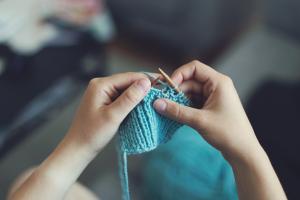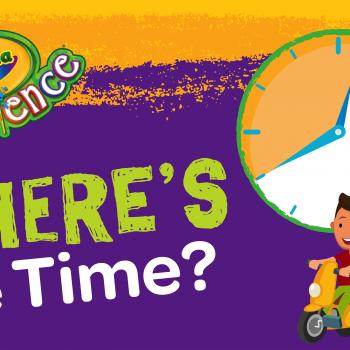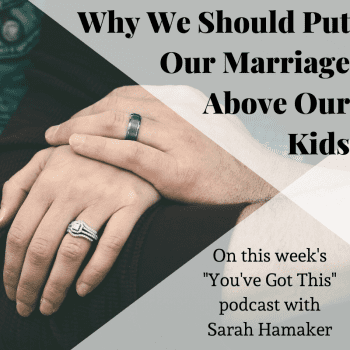
I had several hobbies as a Gen X child. I spent countless hours playing with my collection of Breyer horses, and drawing and cutting out clothes for my homemade paper dolls. I even had a very modest coin collection.
I wasn’t an outlier, as many of my friends and classmates also had hobbies, from an extensive LEGO collection to building model airplanes to collecting stamps. “A hobby can help set the personality, character and actions of children by traveling out of the familiar and widening their circle of friends and interests,” said Dr. Jerry Cammarata, author of The Fun Book of Fatherhood: A Paternity Leave Dad—Tale of a Pioneer. “Hobbies very often become lifelong projects.”
But nowadays, I’ve noticed that fewer kids have hobbies. Plenty of children and teens are involved in organized, adult-led after-school activities and sports, but the number who pursue a hobby or regular activity just for their own enjoyment has dwindled. “Kids today are presented with so many options for static entertainment that there isn’t a lot of exploring going on when kids have free time,” said Laci Morgan, who blogs at Wandering & Whimsy. “With our full calendars, there’s simply no time to discover new passions or develop existing skills, so we take the easy route and don’t set aside time moments for exploration.”

More Than Child’s Play
With kids having less free time, hobbies can often be seen as “not necessary” to a child’s development. However, “hobbies are important for kids because it allows their minds to stretch and reach,” said Lindsay Schlegel, author of Don’t Forget to Say Thank You: And Other Parenting Lessons That Brought Me Closer to God. “For younger kids, it can allow motor skills to develop as well.”
Hobbies can help children learn life skills, such as creativity, cognitive thinking, and problem-solving. “They give kids a productive purpose and a positive to spend their time,” said Kim Stoddard, founder of Loom Journals. “Hobbies also teach our kids about themselves—what they’re good at and what they want to be good at.”
In addition, hobbies give kids a safe place to practice self-regulation, patience and creative expression without worrying about grades or impressing people. “Hobbies can develop into special skills, which could certainly become a career option in the future,” said Amelia Bowler, a board certified behavior analyst. “Equally important, hobbies give kids the opportunity to get into ‘the flow’ (a relaxed state of focus) and acquire an activity to share with others who have the same interests.”
When we encourage our kids to have a hobby, we give them permission to try on different personalities and interests without major repercussions, which can help kids to explore future career choices. “Each semester, I have young people come in with no idea what they want to study,” said Alexandra Allred, who teaches college leadership and freshman orientation classes at Navarro College at Tarleton State University. “The exception would be the students who are more well-rounded, who are readers and writers, who played sports, were in theater, did community works, perfected juggling or painting, made massive LEGO structures or took up archery—those were far more confident in who they are and what they want.”

Hobby Fun
With the numerous positives about having a hobby, I think the best reason is that it gives kids space to do something for the pure enjoyment of it. If a child expresses interest in a hobby, “we as parents need to help them explore it further in a way that doesn’t pressure them or squash their excitement,” Morgan said.
One reason that I’ve made free time a priority in our household is to give my four children opportunities to explore hobbies. One of my sons enjoys learning about birds, while my other son likes reading and watching professional sports. My two teenage daughters enjoy writing K-pop fan fiction and bullet journaling.
We should keep in mind that hobbies don’t have to revolve around the arts or athletics. “There are so many hobbies to choose from,” said Stoddard. “Sometimes figuring out what hobbies to try can be the hardest part, but helping kids talk or write about their perceived strengths and weaknesses will help.”
Having our own hobbies can inspire our kids to pick something up. “My kids know daddy plays the violin and mommy writes and knits,” said Schlegel. “It’s not a surprise then that our four kids are amenable to hobbies. They are learning that leisure time can be spent in a way that continues to develop and challenge our minds.”
Bowler gave her own recipe for a chance to develop healthy hobbies: down time, screen-free zones, an open mind and special time together. “A Pokemon card collection can be just as good for a child’s memory and organization as a rare mineral collection, even if it’s harder for parents to relate and enjoy,” she said.
The beauty of hobbies is that you can pick one up or set one down at will. For example, some of the hobbies I had as a child I no longer like, but some, like knitting, I continue to enjoy. “Music was my hobby,” Cammarata said. “I credit learning to play an instrument and loving music as providing fuel for my own creativity, imagination and even whatever success I achieved in my adult life.”

![]()
![]()












